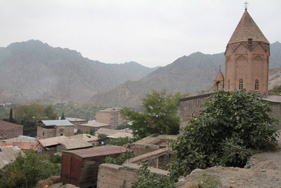Tourism key trade opportunity for poor countries – report

Report launched to coincide with the Year of Sustainable Tourism for Development
Least developed countries comprise 12% of world population but account for less than 2% of world trade – tourism represents an enormous opportunity (in particular for women and youth) but it needs co-operation between government ministries in particular between ministers of tourism and ministers of trade.
A United Nations-backed report has stressed the need for greater recognition of tourism as a key service export in order to attract technical assistance to the sector in least developed countries (LDCs).
Although tourism represents seven per cent of all international trade and 30 per cent of the world’s services trade, it is often difficult to direct trade-related technical assistance towards the sector because tourism and trade tend to fall under different line ministries, the report points out.
The report’s launch coincides with the International Year of Sustainable Tourism for Development 2017. The Year aims to support a change in policies, business practices and consumer behavior towards a more sustainable tourism sector that can contribute to Sustainable Development Goals (SDGs).

Produced by the World Tourism Organization (UNWTO), the International Trade Centre (ITC) and the Enhanced Integrated Framework (EIF), the report, titled Tourism for Sustainable Development in Least Developed Countries ,was launched on the occasion of the Aid for Trade Review held in Geneva.
The Least Developed Countries represent the poorest and weakest segment of the international community. They comprise more than 880 million people (about 12 per cent of world population), but account for less than 2 percent of world GDP and about 1 percent of global trade in goods. tourism accounts for seven per cent of total exports of goods and services – a figure that stands at 10 per cent for non-oil LDC exporters.
The report says that tourism can make a strong contribution to the economies of LDCs, but successful interventions in tourism require strong collaboration across government agencies as well as across different actors at the regional or local level.
The report also aims to increase the commitment and investment in coordination and raise tourism’s prominence in trade-related technical assistance as to ensure the sector delivers on its powerful capacity to create jobs and incomes where they are most needed and for those who are most vulnerable – including youth and women.
Valere Tjolle
@ValereTjolle
 United Kingdom
United Kingdom United States
United States Asia Pacific
Asia Pacific












































EU entry-exit system delayed again
Carnival Cruise Line hosts Prague getaway for Fun Ambassadors
Council moves to designate Forest of Dean a Biosphere
US tourism hit with UK, Germany travel warnings
Uganda Airlines launching London flights